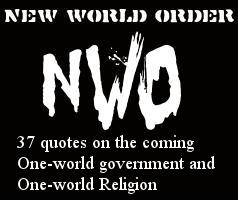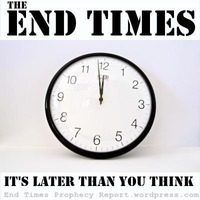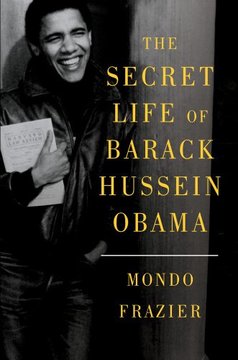
Four-plus years of Google.cn:
Who's Changed the Most: Google or the PRC?
* Google depicts Taiwan and People's Republic of China as One
* No reports of Decreased Google self-censorship in the PRC
* Google's Selective Transparency

[ABOVE: Google Analytics show the country of Taiwan as part of mainland China in the site's visitor tally map overlay.]
ONE CHINA UNDER GOOGLE
Google's China Policy Same As the Communists
IS THIS ANOTHER CONCESSION TO DOING BUSINESS IN CHINA?
How many concessions are too many?
It's been over four years since Google.cn began and changes that Google intended for Chinese users' experience aren't evident. However, the Google experience is different.
For Google itself.
Was one of the conditions of Google launching its Google.cn service the depiction of Taiwan as a part of mainland (Communist) China?
The search engine giant is not telling unsuspecting users of Google Analytics--which depicts Taiwan and Mainland China as the same country--and officially, the company isn't saying, either.
Read this article in its entirety at DBKP: Google, China: One China, Two Googles, How Many Deals?
When Google launched its site for mainland China (Google.cn) in 2005, there were protests on college campuses and elsewhere over the "filtering"--critics said "censorship"--in which the search engine giant had to participate, in order to launch the site. There was even a hearing before Congress.
The Googlization of China came with a different twist than in the USA: politically "sensitive" topics were verbotten. "Tibet independence", "Tank man" and images politically inconvenient to the Communist Chinese leadership were kept from Google users searching for that information.
In effect, Google helped the Communist Chinese leadership re-write history--at least as far as Chinese users searching for information are concerned.
Google maintains that if they don't play along with the Chinese leadership, they'll simply be unable to do business in the world's most populous country.
But the "filtering/censorship" issue was well-publicized.
The depiction of Taiwan, which is recognized by 23 countries and organizations such as the International Olympic Committee and the World Trade Organization, as part of the mainland, was not.
Looking at the map overlay in Google Analytics, a chance discovery was made a few days ago: Google depicts both countries as one. This is exactly the same policy as the People's Republic of China.
The USA, Taiwan (Republic of China) and the PRC all do a complicated diplomatic dance over the status of Taiwan; the slightest changing of a word or even a published newspaper account is enough to set off alarms on both sides of the Taiwan Strait.
So, for Google Analytics to portray the two countries as one, not just in China but to the rest of the world, was unexpected.
For the most part, the Taiwanese are adamant about their not being part of the PRC. The Communists are just as adamant that Taiwan is nothing more than a renegade province. International news organizations often report that "China considers Taiwan a renegade province that must be united with the mainland by force if necessary".
As stated, it's a delicate dance.

[ABOVE: Though Google shows visitors from the two countries as separate tallies, the countries are shown as being one.]
But is Google only dancing with one partner, the Communist Chinese?
All of this might seem like much ado about nothing--if it weren't for the deals cut with the Chinese Communist leadership as a price of doing business by a company who relentlessly promotes its policies as "open", "transparent" and "do no evil".
This writer posed the following questions to Google's Press department on December 22, 2009.
While looking through Google Analytics yesterday, I noticed that you show Taiwan as a part of mainland China in your map. When you mouse over Taiwan, it appears as part of China and visa versa. I went back through the various PR releases of Google on the Google blog, but could find nothing relating to this question. This is not accepted US foreign policy; the USA does not recognize Taiwan as a province of China, but a separate country.[NOTE: As noted above, it's a bit more convoluted than that.]
Is this an error on Google's part? Is this one of the compromises that Google had to make in order to launch Google.cn? Is there any plans for Google to inform users in the rest of the world that Taiwan is not a part of mainland China?
The head of communications for Google's Map Division, Kate Hurowitz, responded pleasantly, if a bit cryptically, on December 23, 2009:
The depiction of maps in tools such as Google Analytics is merely an illustrative representation of the region to assist website owners in getting statistics of the usage of their site in certain geographical areas. As a very generalized reference map, it is neither drawn to scale nor does it purport to represent the most current political status of the region.
That said, it is our intention to offer the most accurate and up-to-date information possible in our products and services, and we are exploring technical solutions that will improve the accuracy of maps like those depicted in Google Analytics.
Fair enough.
But, it didn't answer the question: was this just another compromise that Google had to cut with the PRC, like the famous "filtering/censoring" that goes on at Google.cn?
If this is another pay-off, it may be much more important because Google Analytics is used the world over to track and monitor website traffic. Where one policy only affects Chinese users, the other might be seen as pro-Chinese leadership propaganda that affects perhaps as many as 50% of the websites the world over. (it's hard to get an exact figure on how many sites use GA, but a survey done this year of the world's Top 10,000 websites found that "a full 50% used GA"--the percentage may be larger on smaller sites because GA is free.)
In 2004, Google explained why links to non-approved news sources wouldn't be shown in Google News viewed by mainland Chinese users in China, Google News and source inclusion:
There has been controversy about our new Google News China edition, specifically regarding which news sources we include. For users inside the People's Republic of China, we have chosen not to include sources that are inaccessible from within that country.
This was a difficult decision for Google, and we would like to share the factors we considered before taking this course of action.
Google is committed to providing easy access to as much information as possible. For Internet users in China, Google remains the only major search engine that does not censor any web pages. However, it's clear that search results deemed to be sensitive for political or other reasons are inaccessible within China. There is nothing Google can do about this.
Later in the post, signed by "The Google Team",
Google News does not show news stories, but rather links to news stories. So links to stories published by blocked news sources would not work for users inside the PRC -- if they clicked on a headline from a blocked source, they would get an error page. It is possible that there would be some small user value to just seeing the headlines. However, simply showing these headlines would likely result in Google News being blocked altogether in China.
So Google's position was, "Approved Google News is better than no Google News."
Or was it?
Continue reading: Google, China: One China, Two Googles, How Many Deals -page 3
by Mondo Frazier
images: Google; DBKP file
NOTE: Speaking of transparency, or a lack there of, Google has recently taken fire for it's advocacy of "openness"--for everyone else but itself--as well as playing politics on the net neutrality issue. But that's another issue, another article, another day.
src="http://d.yimg.com/ds/badge2.js"
badgetype="small-votes">
ARTICLEURL

































No comments:
Post a Comment
Leave your name/nic.
We've changed the comments section to allow non-registered users to comment.
We'll continue like that until it's being abused.
We reserve the right to delete all abusive or otherwise inappropriate comments.